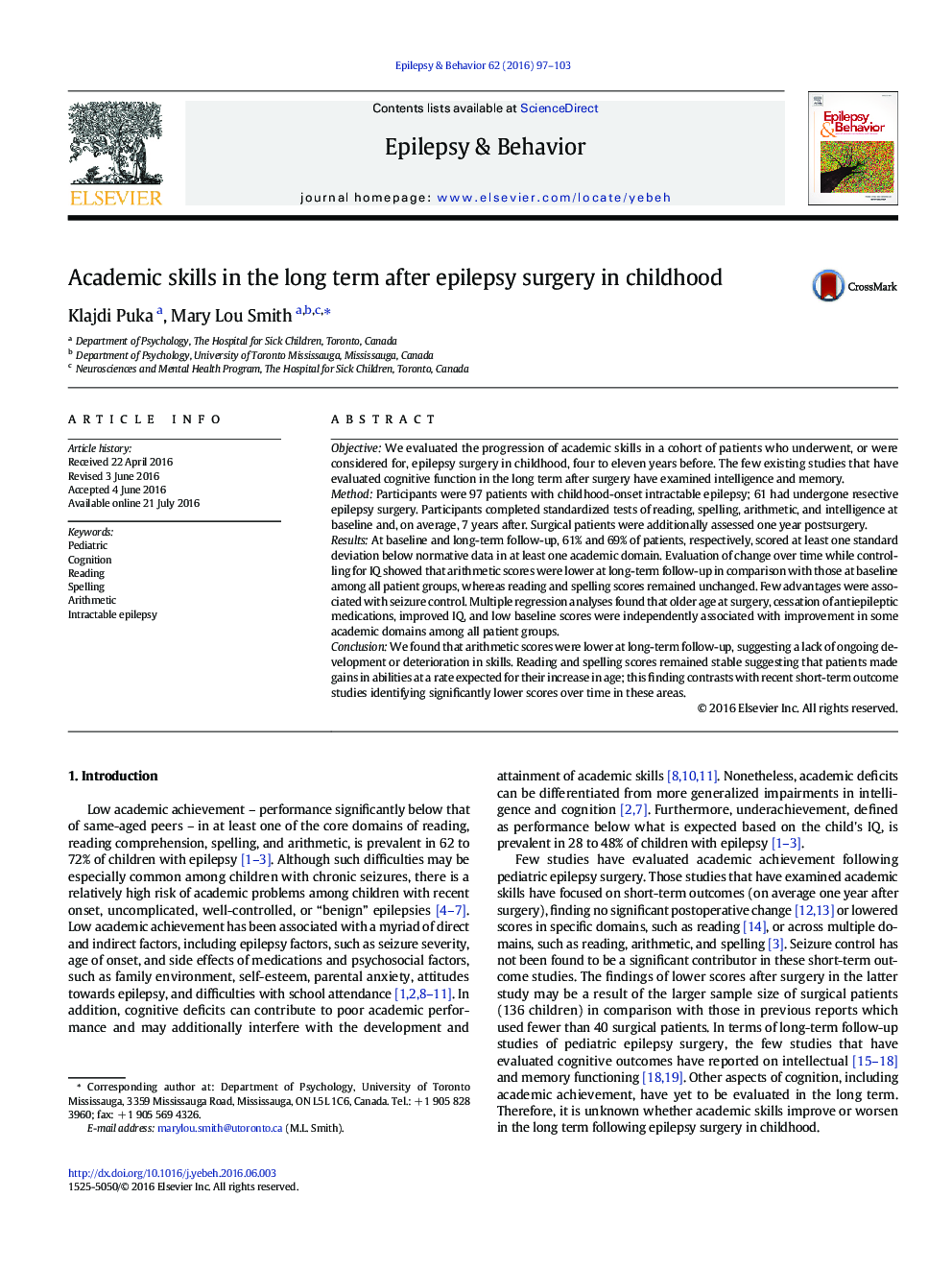| کد مقاله | کد نشریه | سال انتشار | مقاله انگلیسی | نسخه تمام متن |
|---|---|---|---|---|
| 6009766 | 1579829 | 2016 | 7 صفحه PDF | دانلود رایگان |
- Evaluated reading, spelling, and arithmetic skills at baseline and long-term follow-up
- Academic problems were common in our sample of patients with intractable epilepsy.
- Reading and spelling scores were similar at baseline and long-term follow-up.
- Arithmetic scores were lower at follow-up among all patient groups.
- Seizure status was associated with few advantages at long-term follow-up.
ObjectiveWe evaluated the progression of academic skills in a cohort of patients who underwent, or were considered for, epilepsy surgery in childhood, four to eleven years before. The few existing studies that have evaluated cognitive function in the long term after surgery have examined intelligence and memory.MethodParticipants were 97 patients with childhood-onset intractable epilepsy; 61 had undergone resective epilepsy surgery. Participants completed standardized tests of reading, spelling, arithmetic, and intelligence at baseline and, on average, 7Â years after. Surgical patients were additionally assessed one year postsurgery.ResultsAt baseline and long-term follow-up, 61% and 69% of patients, respectively, scored at least one standard deviation below normative data in at least one academic domain. Evaluation of change over time while controlling for IQ showed that arithmetic scores were lower at long-term follow-up in comparison with those at baseline among all patient groups, whereas reading and spelling scores remained unchanged. Few advantages were associated with seizure control. Multiple regression analyses found that older age at surgery, cessation of antiepileptic medications, improved IQ, and low baseline scores were independently associated with improvement in some academic domains among all patient groups.ConclusionWe found that arithmetic scores were lower at long-term follow-up, suggesting a lack of ongoing development or deterioration in skills. Reading and spelling scores remained stable suggesting that patients made gains in abilities at a rate expected for their increase in age; this finding contrasts with recent short-term outcome studies identifying significantly lower scores over time in these areas.
Journal: Epilepsy & Behavior - Volume 62, September 2016, Pages 97-103
